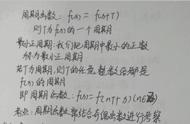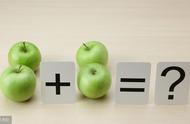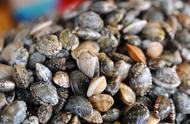exercise的用法
一、exercise用作名词
1)当exercise 作笼统的“运动,锻炼”解时, 是不可数名词。如:
Swimming is a good form of exercise.游泳是一种很好的运动方式。
Good health depends upon good food, exercise, and getting enough sleep.健康依赖于良好的食物、运动和充足的睡眠.
Exercise is good for your heart and lungs.对您的心脏和肺,运动也是有益的。
You’ve put on weight, better take exercise every day.你发胖了,最好每天锻炼。
I suggest you go on a diet and take more exercise.我建议你节食,多做运动。
2)当exercise 作“运用,实践,行使”解时,是不可数名词。如:
the exercise of self-control 自我控制力的运用
the exercise of imagination 想象力的运用
the exercise of power by the government 政府权力的行使
3)当exercise作“ 体操,一种运动; 一套动作 ”解时, 是可数名词。
We do morning exercises every morning. 我们每天上午做早操。
It's good to do eye exercises. 做眼保健操是有好处的。
I do physical exercises every day. 我每天都锻练身体。
Repeat the exercise ten times on each leg.每条腿重复做十次这种动作。
4)当exercise作“练习,习题;实习;(军)演习,操练;”时,是可数名词”。
如: As an exercise, try to explain why before reading the next paragraph. 作为练习,在阅读下一段之前请试着解释一下原因。
Try these online arithmetic exercises; they can improve students’ maths skills. 试试这些网上算术练习,它们可以提高学生的数学技能。
exercises for the violin小提琴练习
exercises on the piano钢琴练习
grammar exercises 语法练习
do exercises 做习题
military exercises 军事演习
This is the exercise we must do .这是我们必须做的练习。
The teacher rubbed the exercises off.老师把练习擦掉了。
5)在美国英语中,常用exercise的复数形式表示“仪式,典礼”之意
Vicky and Gary attended the graduation exercises at Columbia.薇琪和加里参加了在哥伦比亚大学的毕业典礼。
二、exercise用作动词
exercise 用作动词
1)“运动,”解时,是不及物动词;
2)“训练,练习;运用”解时,是及物动词。
3)“锻炼”解时,即是及物动词又是不及物动词。如:
1)You should exercise more .你要多运动些。
2)Peter exercises his dog every morning.彼得每天早上都出去遛狗。
They are exercising troops.他们在练兵。
Horses must be more exercised.马应当多训练。
3)He exercises three times a week. 他每天锻炼三次。
How often do you exercise? 您多久锻炼一次?
You don't exercise enough.你锻炼不够。
You must exercise yourself in order to be stronger and healthier.为了更健康更强壮,你必须锻炼自己。
to exercise one’s rights 行使权力
三、exercise的常用搭配
1)do exercise 锻炼,运动,
如:Do you often do exercise? 你经常做运动/锻炼吗?
Do you want to do exercise with me?你想跟我一起做锻炼吗?
I do exercise every morning. 我每天早晨锻炼身体。
2)do exercises 做练习,做操;
do morning exercises做早操,做广播体操 ;
do eye exercises做眼保健操;
do physical exercises锻炼身体;体育锻炼
如:My advice is that we (should) do exercises first. 我的建议是我们应该先做练习。
We often do exercises after class. 课后我们常常做练习题。
Some people do morning exercises to keep fit. 有些人为了保持身体健康而做早操。
Children should do eye exercises every day. 孩子们应每天做眼保健操。
Every day a lot of people do physical exercises in the park. 每天早上有许多人在公园里进行体育锻炼。
3)take exercise做运动 ;锻炼(= do exercise)
Take exercise together, possibly by playing sport or jogging. 一起做运动, 一起跑步或进行其它健身运动。
I have seen you to take exercise these days. 我看你最近几天都去锻炼啊。
4)do exercises in 做…… 方面的练习
It takes too much time doing exercises in maths. 做数学练习花费了学生大量的时间。
四、drill, exercise, practice和training辨析
drill侧重进行有系统的、严格和重复的练习。尤指学习的操练或军事上的练兵。如:
The soldiers have drill every day. 士兵们每天操练。
Students of English should have a lot of oral drills. 学英语的学生应该多做口头练习。
exercise 主要指为强壮体魄而进行的锻炼,也可指进行练习以保持已经获得的技巧。如:
Walking is good exercise. 散步是很好的运动。
We do English exercises to help us learn good English. 我们做英文练习以便学好英语。
practice指把所学的理论或知识用于实践以获得技艺与技巧。如:
如:Practice makes perfect. 熟练生巧。
It takes a lot of practice to play the piano well. 弹好钢琴需要大量的练习。
training 普通用词,泛指为从事某种职业而进行的身体或智力方面的训练。
He has had no college training. 他没有受过大学训练。
He went into training for the race. 他开始训练参加比赛。
即学即练:
1. He is very strong because he often e___ (根据句意及首字母完成单词)
答案:exercises
解题思路:exercise作动词时意为“运动,锻炼”。在这个句子中缺少的是谓语动词,主语是表示第三人称单数的he,所以用动词的第三人称单数形式,因此填exercises。
2. It's good for us to do ___ every day.
A. eye exercise B. eye exercises C. eyes exercise D. eyes exercises
答案:B
解题思路:exercise作“体操,一种运动”讲时常为exercises,选项A、C被排除,在英语中用名词修饰名词时,前边的名词须用单数形式,故选B。
用exercise, training, practice, drill的适当形式填空
①There'll be a fire________sometime this morning.
今晨某个时候将有一场消防演习。
②We have worked out the plan and now we must put it into________.
我们已经制定了计划,现在必须付诸实施。
③These football players had no strict________until they joined our club.
这些足球运动员在加入我们俱乐部之前没有受过严格的训练。
④If you don't get more________, you'll get fat.
如果你不多锻炼,你会发胖的。
答案:①drill ②practice ③training ④exercise
experience的用法
一、基本用法:
experience用作名词
(1)experience用作名词, 作“经验”解时是不可数名词,不直接与不定冠词连用。
如:experience is the best teacher. 经验是最好的老师。
That was a valuable experience for me. 对我来说,这是一条宝贵经验。
It is necessary to sum up our experience.有必要总结一下我们的经验。
He has much experience in teaching. 他有丰富的教学经验。
I have no driving experience. 我没有驾驶经验。
(2)experience也可作“经历,阅历”解, 此时是可数名词,其单数可表示一具体活动。可与不定冠词连用。
如:Did he tell you about his experiences as a sailor? 他告诉过你他当水手的经历了吗?
He detailed his experiences at the Olympic Games. 他详细谈了他在奥运会上的经历。
None of the others have lived my experiences. 没有任何人体验过我的经历。
Living in Europe was very different from home and quite an experience. 生活在欧洲完全不同于在家里,那真是一次不同寻常的经历。
I had a bad experience with fireworks once. 我放烟火有过一次不愉快的遭遇。
此外,常用的含有experience的名词性短语有:
life experience 生活经历,生活经验;
working /professional experience 工作经验;工作经历 ;
valuable / rich experience 宝贵的 / 丰富的经验;
practical experience 实践经验,实际经验;
personal experience 个人经历 ;个人经历;
user experience用户体验;
relevant experience相关工作经验;
learning experience 学习经验;
past experience过去的经验;
service experience服务经验;运行经验。
Experience 用作动词
(1)experience用作动词的基本意思是“经历”,也可作“体验”“感受”解, 作及物动词,后接名词、代词、动名词或疑问词、从句作宾语。
Our country has experienced great changes in the last 20 years.在过去的20年里,我们国家经历了巨大变化
Have you ever experienced real hunger? 你体验过真正的饥饿吗?
We experienced great difficulty in crossing the desert.我们亲身体验到横穿沙漠是件相当困难的事。
He experienced great hardships for the first time in his life.他有生以来初次体验到巨大的艰苦。
(2)experience的过去分词experienced可用作形容词,在句中作定语或表语。
如: she is an experienced doctor. 她是一位有经验的医生。
He is less experienced in writing than in teaching. 他写作经验没有教学经验丰富。
三、辨析:
undergo, experience, sustain, suffer
这些动词均有“经历,经受,遭受”之意。
undergo多指经受艰难、痛苦、不愉快或危险等事。
例如:The explorers had to undergo much suffering. 探险者不得不忍受很多困苦。
experience指亲身经受或体验某事。
例如:Love is something we all need. But how do we know when we experience it? 爱是我们都需要的东西,但是我们怎么知道什么时候经历了爱?
sustain指遭受痛苦或承受负担。
He died after sustaining severe head injuries. 他头部受了重伤后死去了。
suffer常可与sustain通用,尤指受到损害或伤害。
And I shall suffer so terribly, because you never, never will love me. 而我将遭受巨大的痛苦,因为你永远永远不会爱我。
三、搭配:
1)experience of 有……的经验,后接名词或动名词
例: She had no experience of life at all. 她毫无生活经验.
Have you had any experience of teaching English? 你有教英语的经验吗?
2)experience in sth 在(某方面)有经验或经历,后接名词或者动名词,
例如:She has no experience in typing, nor does the skill interest her.她没有打字经验,那种技术也引不起她的兴趣.
I am trying to find out experience in teaching.在教学领域,我在摸索教学经验.
They have rich experience in practice.他们有丰富的实践经验。
It is a common experience in life.那是人生中的普通经历。
3)experience with sth …的经历
例如:My experience with a foreign language began in junior middle school, when I took my first English class. 我学习外语的经历始于初中,当时我上了第一节英语课。
4.be experienced at 有…经验,后接名词或动名词。
She is not yet experienced at love affairs.她还未经历过恋爱。
She is not yet experienced at teaching.她没有教过书。
5. by experience 凭经验;通过经验
And only by experience can we get to know it. 只有通过体验,我们才能获得感悟。
You will grow wiser by experience. 你会从经验中逐渐变得聪明起来。
四、即学即练:
请用experience的正确形式填空:
1)please tell us about your_________________ in China.
2) The city _______________________ 2,000 such incident last year.
3)Have you had any experience_________ teaching English?
4) She has years of experience_________ teaching.
5) He hasn’t had enough working experience _____ the job.
参考答案:
1)experiences 2) experienced 3) of 4) in 5) for
1)请告诉我们您在中国的经历。
2)去年,这个城市经历了2000起这样的事故。
3)你有教英语的经验吗?
4)她有数年的教学经验。
5)他没有足够的干这个工作的经验。
welcome的用法:
一、作感叹词
1. Welcome to Shenzhen! 深圳欢迎您!
2. Welcome,come in . please. 欢迎,欢迎,请进来。
二、作名词
意为“欢迎,款待”,可用 warm (热烈的), cold (冷淡的), enthusiastic (热情的)等形容词作定语加以修饰。例如:
3. The hostess gave us a warm welcome. 女主人热烈欢迎我们。
4. Her suggestion received a rather enthusiastic welcome. 她的建议颇受欢迎。
三、作及物动词
意为“欢迎(某人或某事物)”。例如:
5. They welcomed us warmly and showed us to our rooms.他们热情地欢迎我们,并把我们带到我们住的房间里。
6. He was warmly welcomed back to Beijing.
People warmly welcomed him back to Beijing.人们热烈欢迎他回到北京。
7. He didn't welcome the suggestion.他不欢迎这项建议。
四、作形容词用时即可作表语有可作定语:
作定语,意为“受欢迎的”:“令人喜欢的”。
例如:
8. a welcome guest 受欢迎的客人
9. a welcome rain 甘霖
10. a most welcome suggestion 极受欢迎的建议
▲作表语,welcome 意为“被允许的;可随意使用……的”。例如:
11. You are welcome to use my car. 我的车你尽管用。
12.He is welcome to my share.我那一份他可以随便取用。
13.You’re welcome to it.随便用。
14. You’re welcome.不用客气。(美国英语)
▲切记不要把作表语用的形容词 welcome 和被动语态中的过去分词 welcomed 混用。
例如:
15. Anyone who wants to come will be welcome.谁想来都受欢迎。(不用 welcomed )
16. We were heartily welcomed by our hosts.我们受到主人的热情欢迎。(不用 welcome )
五、即学即用:判断正误:
1)北京欢迎您!
Welcome you to visit Beijing! ✘
说明:欢迎某人来某地:Sb. be welcome to some place 故此句不符合英语习惯表达。
Welcome to Beijing! ✔
说明:此句是Sb. be welcome to some place 的省略。故此句是对的。
You’re welcome to Beijing. ✔
2)我们欢迎外国朋友参观中国。
We welcome foreign friends to visit China. ✘
说明:欢迎某人做某事:Sb. be welcome to do sth. 故此句不对。
Foreign friends are welcome to visit China. ✔
用英语表达下列句子:
3.欢迎您来我们学校。
You ‘re welcome to our school.
4.我们热烈地欢迎了贵宾。
We gave the distinguished guests a warm welcome.
说明:give sb. a warm welcome 热烈欢迎某人
5.他们用鲜花欢迎我们。
They welcomed us with flowers.
6.今晚将为他举行一次欢迎会。
A welcome meeting will be held for him this evening.
7.这儿的任何东西您尽管使用好了。
You ’re welcome to anything here.
8.我们欢迎先进工作者归来。
We welcomed the advanced workers home .
9.欢迎搭乘本航班!
Welcome aboard!
allow的用法:
一、基本用法
allow表示“允许”,通常为及物动词,其后可接名词、代词、动名词作宾语,但不能接不定式。
如: 我们不许在池子里游泳。
正:We don’t allow swimming in the pool.
误:We don’t allow to swim in the pool.
We cannot stand by and allow such a thing.对这样的事我们不能袖手旁观。
The masses wouldn’t allow it . 群众是不会答应的。
You’re allowed half an hour to complete the test. 你有半小时时间完成这个测试。
二、相关搭配:
allow 做“允许”解释时,通常有以下的搭配:
1)allow sb. to do sth. 允许某人做某事
I’m afraid we don’t allow people to bring dogs into this restaurant.对不起, 带狗不能进本店。
做此义解释时,可以有被动语态:be allowed to do sth.
如:Children under eighteen are not allowed to buy alcohol.十八岁以下的孩子不允许购买酒精饮料。
2)做“允许”解释时,allow还常与 out, in, up等副词搭配使用,即 allow sb.in/out/up等.
①Only a few journalists were allowed inside. 只有少数记者允许进入会场。
②She is not allowed out after dark.天黑后,不准她出去.
③The patient was allowed up after ten days.十天后病人才被允许起床(下地).
④The doorman allowed the people in one by one. 看门的人让人们一个一个的进去。
3)allow(sb.) into 允许进入; be allowed into 被允许进入
They wouldn’t allowed him into the house.他们不允许他进屋。
Black people aren’t allowed into such places. 黑人不允许到这些地方去。
4)allow of 允(容)许(主要用于否定句)
The situation allows of no delay. 情况不容许拖延。
Such conduct allows of no excuse. 这样的行为是不容辩解的。
allow 还可做“承认”解,此时,后面可接名词; that从句和sb.to be …结构。
如:The judge allowed the claim .法官承认了这一要求。
I allow that I was a bit hasty. 我承认我这样做轻率了点。
You must allow yourself to be in the wrong. 你应当承认自己错了。
以下allow的搭配不做“允许”解:
5)Sth./sb. allow sb. sth. 赋予,给予
My contract allows four weeks’ holidays a year. 根据合同,我每年有四周的假期。
We’ll allow you time to answer. 我们将给回答的时间。
I will allow you 10% off the price if you pay now. 如果你现在付款,我可以给你打九折。
6)Sth. allows sb/sth to do sth. 使某人/某物可以做某事
Working part time would allow me to spend more time with my family.部分工作时间使我有跟多的时间跟家人相聚。
allow for 把……考虑进去;准备会有(某种)情况发生
In working with this cloth , be sure to allow for shrinkage.在裁剪这块布料时,一定要考虑会缩水。
We must allow for the train being late. 我们应当考虑到火车可能会晚点。
三、易混辨析:
allow、permit和let的区别
两者均可表示“允许”,其区别是:
permit 用于正式场合,通常只用于书面语中,指上级、规则或法令等表示的准许,其语气较重;
而 allow 正式或非正式场合都可以,通常指消极地不加反对,有时含有听任或默许之意,语气较弱。
Let一般用于非正式场合,口语中常用,用于let sb. do sth. 且没有被动语态。
如:Nothing is permitted; everything is allowed. 一切都没明文规定可以做,但一切做了也无妨。
The nurse allowed him to remain there,though it was not permitted. 护士让他留在那儿,而按规定那是不许可的。
Visitors are not permitted to smoke in this area.参观者不得在此区域内吸烟。
My dad won’t let me smoke in my bedroom. 我爸爸不让我在卧室内吸烟。
另外,★当用it作主语时,只有permit可用于被动结构。
如:It is not permitted to smoke on this plane. (此时不能用allow)。
四、即学即练:
1)我们不许孩子们在池子里游泳。
We don’t allow children to swim in the pool.
2)医院内不准吸烟。
Smoking is not permitted in the hospital.
You are not permitted to smoke in the hospital.
3)如果天气允许的话,周末一起去野餐吧。
Let’s have a picnic at the weekend, weather permitting /if the weather permits.
4)他的签证不允许他找工作。
His visa doesn’t permit him to work.
5)把交通繁忙的因素算在内的话,整个旅行需时两小时。
The journey should take about two hours, allowing for heavy traffic.
,

























